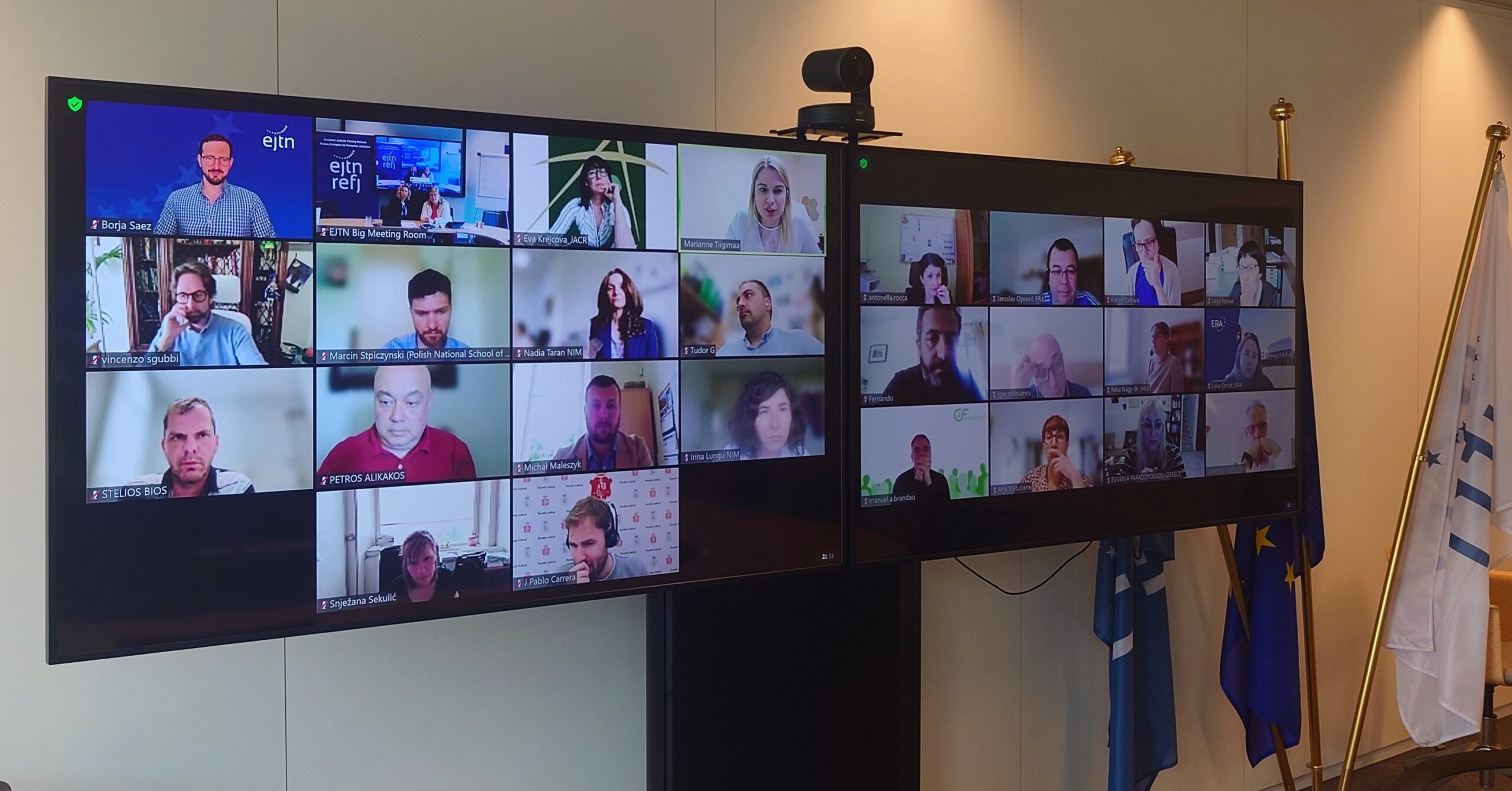The European Judicial Training Network (EJTN) commenced its 2024 Activity Coordinators training on 7 May, marking a significant step forward in judicial education across Europe. The EJTN Secretary General, Ingrid Derveaux highlighted in her opening remarks the significance of the event, aimed at enhancing the skills and expertise of judicial trainers and coordinators.
Eva Krejčová from the Czech Judicial Academy and Marianne Tiigimaa from the Estonian Office of the Prosecutor General developed the format of the training activity as seasoned Activity Coordinators. Their efforts in refining the organisation and impact of EJTN’s activities were acknowledged as foundational for the year’s training agenda.
The training event also featured a keynote from Marie-Claire Foblets, Director of the Department of Law & Anthropology at the Max Planck Institute for Social Anthropology. She discussed the critical role of cultural diversity in judicial training, emphasizing how such understanding can lead to more inclusive legal practices across Europe.
EJTN is also introducing a new training format this year, with an online session set to be followed by a hybrid event in September in Brussels. This innovative approach is designed to bridge the gap between theoretical learning and practical application, enhancing the efficacy of the training provided.
The focus of this year’s training will be on cultural diversity and gender balance, underscoring these as not just policy highlights from the European Commission, but as essential principles that guide judicial training. The aim is to ensure that these themes are thoroughly integrated into the training content, promoting inclusivity and equality.
Participants will leave the training with a robust understanding of their roles as Activity Coordinators. They will gain skills in organising training events, drafting activity descriptions, setting learning objectives, choosing appropriate training formats and methods, and evaluating the outcomes of their training initiatives.
Ms. Derveaux closed the session with a note of gratitude to all present, emphasizing the collective effort to enhance judicial training: “Together, we have the opportunity to shape the future of judicial training in Europe and beyond,” she stated, encouraging an approach of open-mindedness and collaborative participation among all attendees.”




